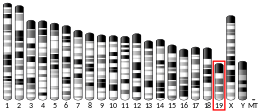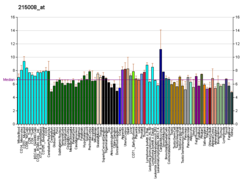| TLL2 | |||||||||||||||||||||||||||||||||||||||||||||||||||
|---|---|---|---|---|---|---|---|---|---|---|---|---|---|---|---|---|---|---|---|---|---|---|---|---|---|---|---|---|---|---|---|---|---|---|---|---|---|---|---|---|---|---|---|---|---|---|---|---|---|---|---|
| Identifiers | |||||||||||||||||||||||||||||||||||||||||||||||||||
| Aliases | TLL2, tolloid like 2 | ||||||||||||||||||||||||||||||||||||||||||||||||||
| External IDs | OMIM: 606743; MGI: 1346044; HomoloGene: 56545; GeneCards: TLL2; OMA:TLL2 - orthologs | ||||||||||||||||||||||||||||||||||||||||||||||||||
| |||||||||||||||||||||||||||||||||||||||||||||||||||
| |||||||||||||||||||||||||||||||||||||||||||||||||||
| |||||||||||||||||||||||||||||||||||||||||||||||||||
| |||||||||||||||||||||||||||||||||||||||||||||||||||
| |||||||||||||||||||||||||||||||||||||||||||||||||||
| Wikidata | |||||||||||||||||||||||||||||||||||||||||||||||||||
| |||||||||||||||||||||||||||||||||||||||||||||||||||
Tolloid-like protein 2 is a protein that in humans is encoded by the TLL2 gene.
This gene encodes an astacin-like zinc-dependent metalloprotease and is a subfamily member of the metzincin family. Unlike other family members, a similar protein in mice does not cleave procollagen C-propeptides or chordin.
References
- ^ GRCh38: Ensembl release 89: ENSG00000095587 – Ensembl, May 2017
- ^ GRCm38: Ensembl release 89: ENSMUSG00000025013 – Ensembl, May 2017
- "Human PubMed Reference:". National Center for Biotechnology Information, U.S. National Library of Medicine.
- "Mouse PubMed Reference:". National Center for Biotechnology Information, U.S. National Library of Medicine.
- Scott IC, Clark TG, Takahara K, Hoffman GG, Eddy RL, Haley LL, Shows TB, Greenspan DS (Oct 1999). "Assignment of TLL1 and TLL2, which encode human BMP-1/Tolloid-related metalloproteases, to chromosomes 4q32→q33 and 10q23→q24 and assignment of murine Tll2 to chromosome 19". Cytogenet Cell Genet. 86 (1): 64–5. doi:10.1159/000015412. PMID 10516436. S2CID 42081614.
- ^ "Entrez Gene: TLL2 tolloid-like 2".
Further reading
- Nagase T, Ishikawa K, Suyama M, et al. (1999). "Prediction of the coding sequences of unidentified human genes. XIII. The complete sequences of 100 new cDNA clones from brain which code for large proteins in vitro". DNA Res. 6 (1): 63–70. doi:10.1093/dnares/6.1.63. PMID 10231032.
- Scott IC, Blitz IL, Pappano WN, et al. (1999). "Mammalian BMP-1/Tolloid-related metalloproteinases, including novel family member mammalian Tolloid-like 2, have differential enzymatic activities and distributions of expression relevant to patterning and skeletogenesis". Dev. Biol. 213 (2): 283–300. doi:10.1006/dbio.1999.9383. PMID 10479448.
- Reynolds SD, Zhang D, Puzas JE, et al. (2000). "Cloning of the chick BMP1/Tolloid cDNA and expression in skeletal tissues". Gene. 248 (1–2): 233–43. doi:10.1016/S0378-1119(00)00114-1. PMID 10806368.
- Hartley JL, Temple GF, Brasch MA (2001). "DNA Cloning Using In Vitro Site-Specific Recombination". Genome Res. 10 (11): 1788–95. doi:10.1101/gr.143000. PMC 310948. PMID 11076863.
- Uzel MI, Scott IC, Babakhanlou-Chase H, et al. (2001). "Multiple bone morphogenetic protein 1-related mammalian metalloproteinases process pro-lysyl oxidase at the correct physiological site and control lysyl oxidase activation in mouse embryo fibroblast cultures". J. Biol. Chem. 276 (25): 22537–43. doi:10.1074/jbc.M102352200. PMID 11313359.
- Strausberg RL, Feingold EA, Grouse LH, et al. (2003). "Generation and initial analysis of more than 15,000 full-length human and mouse cDNA sequences". Proc. Natl. Acad. Sci. U.S.A. 99 (26): 16899–903. Bibcode:2002PNAS...9916899M. doi:10.1073/pnas.242603899. PMC 139241. PMID 12477932.
- Deloukas P, Earthrowl ME, Grafham DV, et al. (2004). "The DNA sequence and comparative analysis of human chromosome 10". Nature. 429 (6990): 375–81. Bibcode:2004Natur.429..375D. doi:10.1038/nature02462. PMID 15164054.
- Gerhard DS, Wagner L, Feingold EA, et al. (2004). "The Status, Quality, and Expansion of the NIH Full-Length cDNA Project: The Mammalian Gene Collection (MGC)". Genome Res. 14 (10B): 2121–7. doi:10.1101/gr.2596504. PMC 528928. PMID 15489334.
This article on a gene on human chromosome 10 is a stub. You can help Misplaced Pages by expanding it. |






